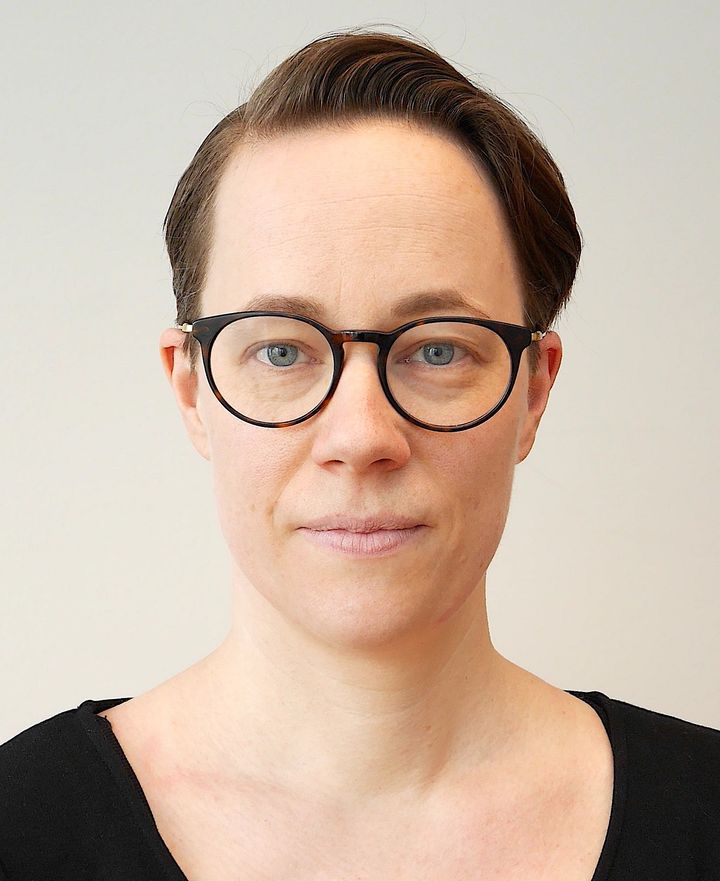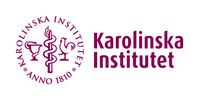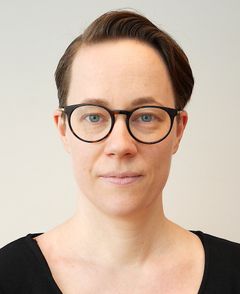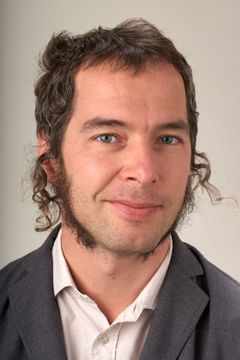Digital CBT effective for severe COVID-19 worry
Worry about COVID-19 dominates some people’s lives in a way that has an impact on their health. A group of researchers at Karolinska Institutet in Sweden has developed a digital CBT programme that significantly reduced the participants’ unhelpful worry about the pandemic. The study is published in Psychotherapy and Psychosomatics and the programme is available through 1177 Vårdguiden.

A great many people in Sweden and around the world have been infected with COVID-19 in a short space of time. Meanwhile, much has been done in society to limit transmission. It is completely normal to worry at times like this, and for the vast majority of people the anxiety requires no intervention.
However, in some people, worry turns into unhelpful worry, which is to say that it takes over their lives in a detrimental way, leading to a heightened state of anxiety, insomnia, concentration difficulties, low mood or excessive use of alcohol and drugs.
Managing COVID-19 anxiety
Last spring, researchers at Karolinska Institutet with experience of dealing with anxiety-related problems developed a digital, CBT-based self-help programme designed to reduce unhelpful worry associated with COVID-19.
“The digital self-help intervention ‘Hantera oro vid covid-19’ (Managing COVID-19 worry) is completed in three weeks without any contact with a therapist,” says the paper’s first author Tove Wahlund, psychologist and researcher at the Department of Clinical Neuroscience, Karolinska Institutet. “The main reason for developing an entirely self-guided online intervention was to create a scalable and easily accessible solution that didn’t put additional pressure on the already burdened healthcare services.”
Available on 1177 Vårdguiden
The researchers evaluated ‘Hantera oro vid covid-19’ during the spring and summer by randomly assigning 670 participants to two groups, one that started the CBT programme immediately and one that was required to wait for three weeks. The groups were then compared.
The results showed that the therapy reduced the participants’ unhelpful worry by about 40 percent according to a self-rated questionnaire completed at the end of the three-week programme. During this time, the control group’s self-rated worry decreased by 17 percent, a statistically significant difference.
“The participants who underwent the therapy also showed a significant improvement in their ability to function at work and at home, and had fewer sleep problems and a lower degree of depressive symptoms,” says the paper’s last author Erik Andersson, associate professor and psychologist at the Department of Clinical Neuroscience, Karolinska Institutet.
The self-help programme is currently available to all citizens in Region Stockholm through the 1177 Vårdguiden website and app. The programme is also on its way to being adopted by other health authorities around the country.
The study was conducted by Karolinska Institutet in collaboration with Region Stockholm’s Health Services and Medical Care Administration and was financed by VINNOVA (The Swedish Innovation Agency).
Erik Andersson, Tove Wahlund, David Mataix-Cols, Elles De Schipper and Klara Olofsdotter Lauri have received grants from VINNOVA for the paper. Brjánn Ljótsson has reported a fee received from Pear Therapeutics Inc unrelated to the paper, and also holds the copyright to an IBS self-help manual, with royalties paid from Pear Therapeutics Inc. David Mataix-Cols has reported fees received from Elsevier and UpToDate, Inc unrelated to the paper. There are no other reported conflicts of interest.
Publication: “Brief online-delivered cognitive-behavioural therapy for dysfunctional worry related to the covid-19 pandemic: A randomised trial”. Tove Wahlund, David Mataix-Cols, Klara Olofsdotter Lauri, Elles de Schipper, Brjánn Ljótsson, Kristina Aspvall, Erik Andersson. Psychotherapy and Psychosomatics, online 20 November 2020, doi: 10.1159/000512843
For more information, please contact:Erik Andersson, associate professor and psychologistDepartment of Clinical Neuroscience, Karolinska InstitutetEmail: erik.m.andersson@ki.se Phone: +46 (0)73-671 63 35
Tove Wahlund, researcher and psychologistDepartment of Clinical Neuroscience, Karolinska InstitutetEmail: tove.wahlund@ki.sePhone: +46 (0)72-500 90 24
Contacts
Contact the Press Office and download photo: ki.se/pressroom
Images
Karolinska Institutet (https://ki.se/en) is one of the world’s leading medical universities. Our vision is to advance knowledge about life and strive towards better health for all. Karolinska Institutet accounts for the single largest share of all academic medical research conducted in Sweden and offers the country’s broadest range of education in medicine and health sciences. The Nobel Assembly at Karolinska Institutet selects the Nobel laureates in Physiology or Medicine.
Subscribe to releases from Karolinska Institutet - English
Subscribe to all the latest releases from Karolinska Institutet - English by registering your e-mail address below. You can unsubscribe at any time.
Latest releases from Karolinska Institutet - English
New method reveals how the brain and inner ear are formed3.4.2025 20:00:00 CEST | Pressmeddelande
Researchers at Karolinska Institutet have developed a method that shows how the nervous system and sensory organs are formed in an embryo. By labelling stem cells with a genetic ‘barcode’, they have been able to follow the cells’ developmental journey and discover how the inner ear is formed in mice. The discovery, published in Science, could provide important insights for future treatment of hearing loss.
Fluoride in drinking water is associated with impaired childhood cognition7.3.2025 15:30:00 CET | Pressmeddelande
Elevated concentrations of fluoride can occur in well water, and in some countries, it is added to drinking water to counteract caries in the population. A study from Karolinska Institutet in Sweden now supports a few previous studies indicating that exposure to fluoride during the fetal stage or early childhood may impair cognition in children. The study is published in the journal Environmental Health Perspectives.
Children with ARFID face increased risk of disease17.2.2025 17:00:00 CET | Pressmeddelande
Children with avoidant restrictive food intake disorder (ARFID) have an elevated risk of developing psychiatric and physical conditions, a new study from Karolinska Institutet published in JAMA Pediatrics reports. The study highlights the importance of early identification to improve care of these children.
Preterm babies receive insufficient pain management27.1.2025 15:29:17 CET | Pressmeddelande
A large proportion of babies born very early need intensive care, which can be painful. But the healthcare system fails to provide pain relief to the full extent. This is shown by the largest survey to date of pain in neonatal care, now published in the journal Pain.
New study paves way for immunotherapies tailored for childhood cancers20.1.2025 17:00:00 CET | Pressmeddelande
Researchers at Karolinska Institutet and the Astrid Lindgren Children’s Hospital in Sweden have determined how children’s immune systems react to different kinds of cancer depending on their age. The study, which is published in the journal Cell, reveals significant differences between the immune response of children and adults, and has the potential to lead to new tailored treatments for children with cancer.
In our pressroom you can read all our latest releases, find our press contacts, images, documents and other relevant information about us.
Visit our pressroom

